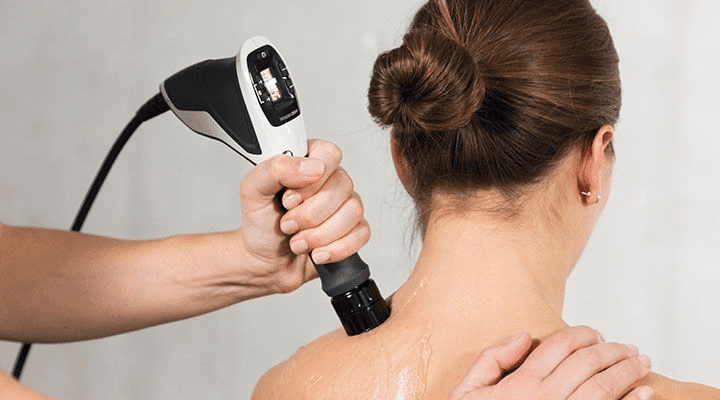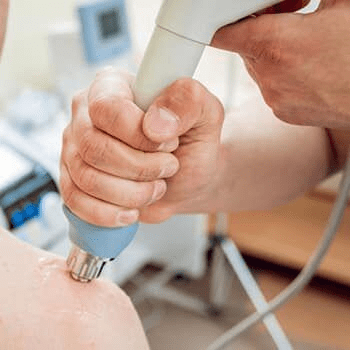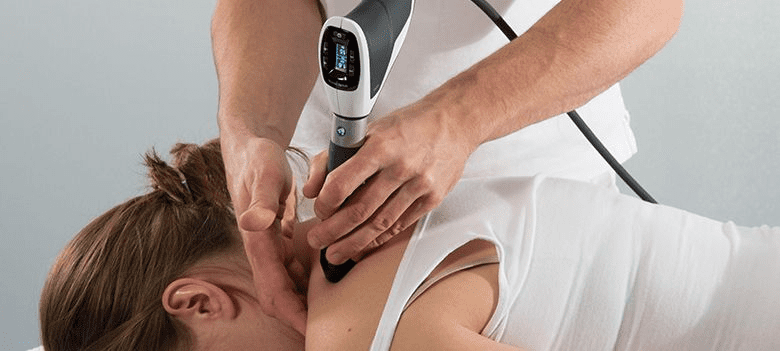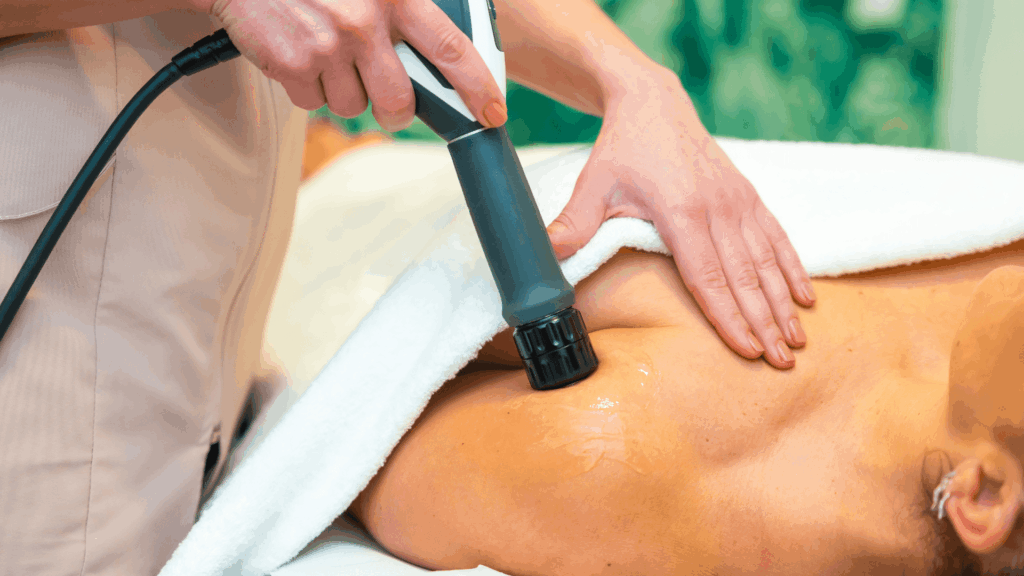What is Extracorporeal Shockwave Therapy (ESWT)?
Extracorporeal Shockwave Therapy (ESWT) is a non-invasive treatment that uses high-energy sound and pressure waves to stimulate healing in areas of pain or injury. The purpose of this therapy is to promote tissue repair, reduce inflammation, and alleviate pain.
It is often recommended for patients who have not responded to conservative treatments such as rest, physical therapy, or medications. Many of our patients report meaningful improvements in both pain levels and quality of life following this therapy.
Our center offers both radial and focused shockwave treatments:
- Radial shockwave delivers low-to-moderate energy pressure waves, making it well-suited for soft tissue conditions involving fascia, tendons, and muscles.
- Focused shockwave generates higher-energy pulses, which can be more effective for deeper or calcified tissues, including bone stress injuries, arthritis, or calcific tendonitis.



Who May Benefit
Shockwave therapy can help patients with a wide range of musculoskeletal conditions affecting tendons, muscles, bones, and joints, including:
Orthopedics / Sports medicine
- Plantar fasciitis
- Tendon disorders :
- Achilles, patellar, hamstring, elbow, and shoulder tendinopathies
- Epicondylopathy (elbow)
- Heel spur / plantar fasciitis
- Achilles tendinopathy
- Shoulder pain: supraspinatus tendonitis, calcific tendonitis
- Patellar tendinopathy
- Iliotibial band syndrome
- Tibial stress syndrome (shin splints)
- Greater trochanteric pain syndrome
- Morton’s neuroma
- Fibromyalgia
- Myofascial trigger points
- Osteoarthritis, joint injuries
- Bursitis
- Bone injuries: Non-healing fractures, delayed healing fracture, stress fractures,
- Urology / Pelvic / Sexual Health
- Vascular erectile dysfunction (VED)
- Chronic prostatitis / chronic pelvic pain syndrome (CP/CPPS)
- Peyronie’s disease (Induratio Penis Plastica)
- Erectile function improvement via angiogenesis, tissue remodeling, nerve recovery
The FDA has approved ESWT for plantar fasciitis and tennis elbow, and clinical studies have shown it to be effective for Achilles, hamstring, and shoulder tendonitis, as well as other sports-related injuries.
What Are the Risks of Shockwave Therapy?
Shockwave therapy is considered safe and non-invasive, with minimal reported complications in medical research.
Our clinicians combine evidence-based practice with clinical expertise to help ensure optimal results and patient safety.
What to Expect?
Before the Procedure
Shockwave therapy is performed in our outpatient clinic setting—no anesthesia or sedation is required.
During the Procedure
Your initial session is performed by a physician, who tailors the treatment plan to your specific diagnosis.
Subsequent sessions are typically carried out by trained technicians under direct provider supervision. Throughout your treatment series, you’ll maintain open communication with your physician to monitor your progress and adjust the plan as needed.
You’ll be encouraged to give feedback during each session so the technician can accurately target the most painful areas—a process known as clinical focusing, which enhances treatment outcomes.
Each treatment typically lasts about 15 minutes, and discomfort should remain tolerable throughout.
After the Procedure
It’s common to experience temporary soreness, tenderness, or mild swelling following treatment. This occurs because shockwaves trigger a controlled inflammatory response—a key step in stimulating natural healing.
Most patients can resume daily activities immediately, and may continue physical therapy unless advised otherwise.
For those receiving focused shockwave therapy, your provider may recommend short-term activity modification to reduce stress on healing tendons.
If pain has improved, returning to physical activity is generally reasonable after 48 hours, though timing may vary by individual and condition.
Because the inflammatory phase aids recovery, anti-inflammatory medications (NSAIDs, including ibuprofen, Aleve, or oral steroids) should be avoided during treatment.
For discomfort, acetaminophen (Tylenol) is preferred, and ice may be used if needed.
Most patients undergo one session per week for 3–4 weeks.
Pain relief may begin after the first treatment, though full healing benefits often take up to three months after starting ESWT.




